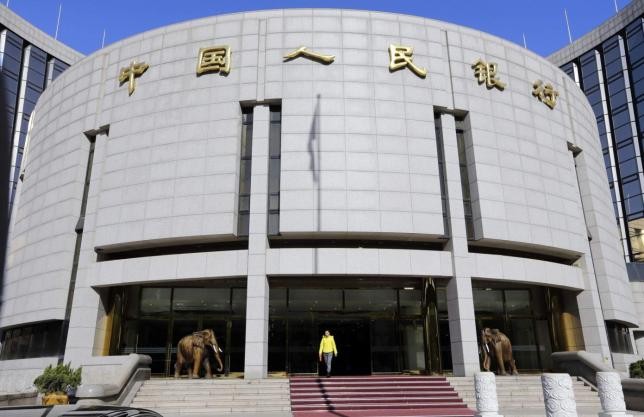China's top legislature agreed over the weekend to remove the two-decade limit on the loan-to-deposit ratios (LDRs) of commercial banks, a new initiative toward sustaining the real economy amid downtrend in economic growth.
The Standing Committee of the National People's Congress approved on Saturday the amendment to the Law of the People's Republic of China on Commercial Banks, dropping a stipulation that puts a cap on the funds commercial banks are permitted to lend at 75 percent of their total deposits, effective Oct. 1.
The amendment was done a few days after the central bank People's Bank of China declared a decrease to key benchmark interest rates and a cut to the reserve requirement ratios (RRR) of the banks to support the slowing economy.
Financial experts see the move as another regulatory attempt to help ease the financing challenges that the country is facing.
"Despite the central bank's recent monetary easing measures such as interest rate and RRR cuts, financing support by banks to the real economy remains relatively weak," Sun, a banking analyst who declined to disclose his full name or employer, informed the Global Times on Sunday.
"Given the downward pressure facing the economy, it is necessary to improve banks' lending capacity to boost growth," Sun added.
The China Banking Regulatory Commission (CBRC) said that commercial moneylenders will still use the LDR as a liquidity checking indicator.
The loan limit was initially meant to prevent credit overextension. But the economic and financial developments have proven the LDR to be inapplicable for commercial banks' needs, the Xinhua News Agency reported Saturday, quoting CBRC chairman Shang Fulin.
"Many new businesses such as wealth management products are not subject to the LDR requirement as they are off-balance-sheet vehicles. In this sense, the LDR can no longer properly play a role in supervising a bank's lending," Department of Finance professor Xi Junyang of the Shanghai University of Finance and Economics told the Global Times on Sunday.
"Also, most large banks' actual LDRs are much lower than the 75-percent cap," Xi continued.
On the other hand, small and medium-sized banks' LDRs are nearing the 75-percent cap, meaning that the removal of the limit may aid their lending to rural locations and micro-sized businesses, Xinhua reported on Saturday, quoting professor Guo Tianyong from the Central University of Finance and Economics.
"Against the backdrop of the faltering economy, banks may not be willing to issue too many loans, even if they technically can, as they are concerned about the risks," Sun said.



























